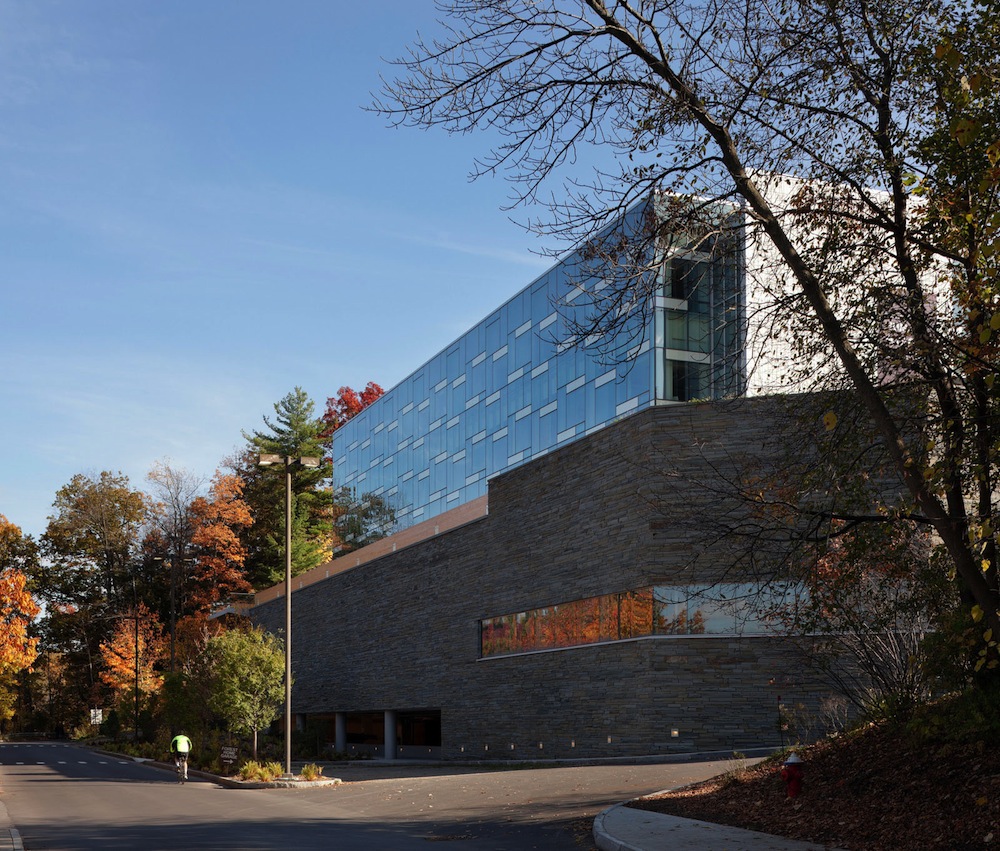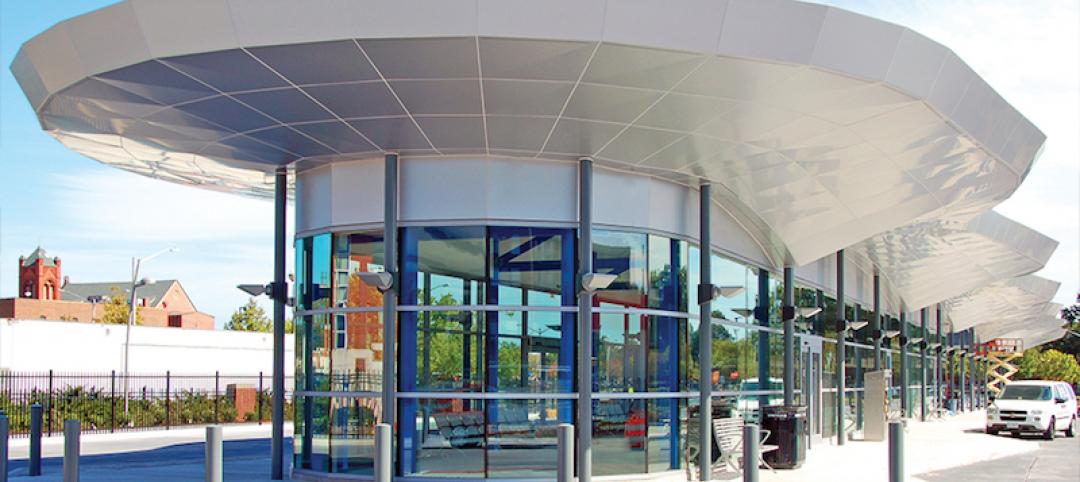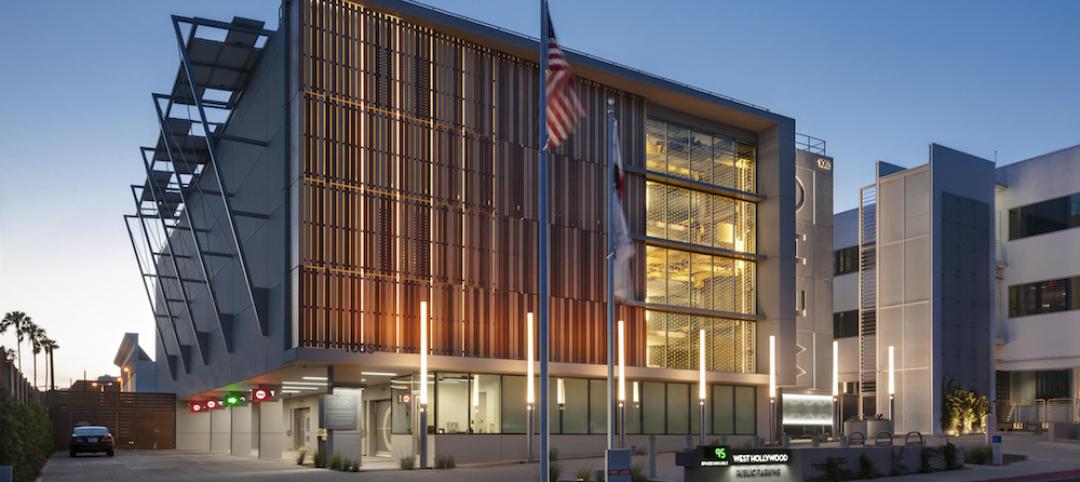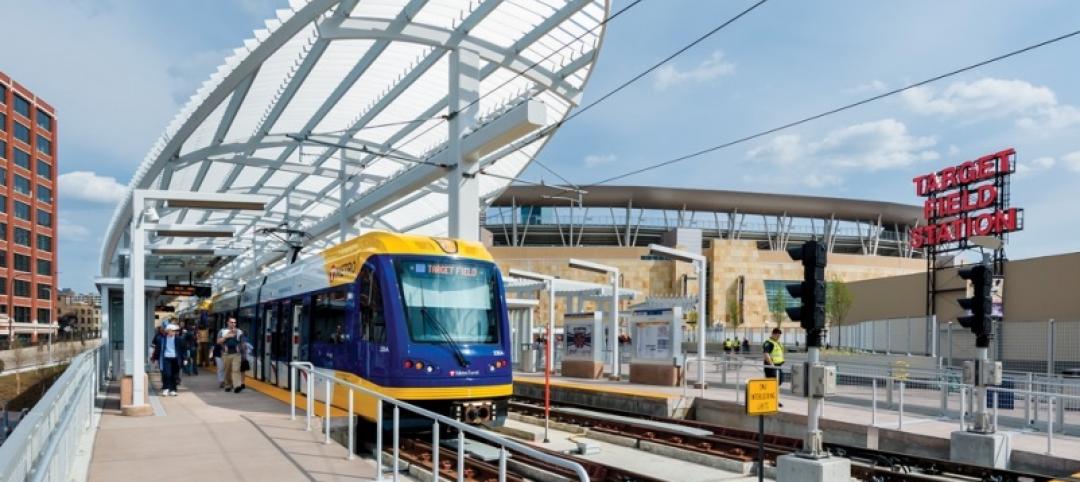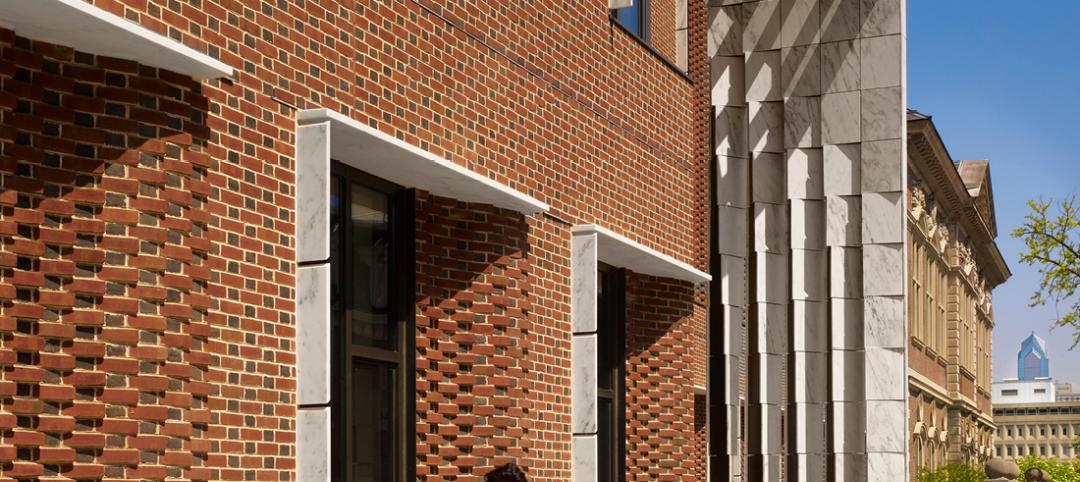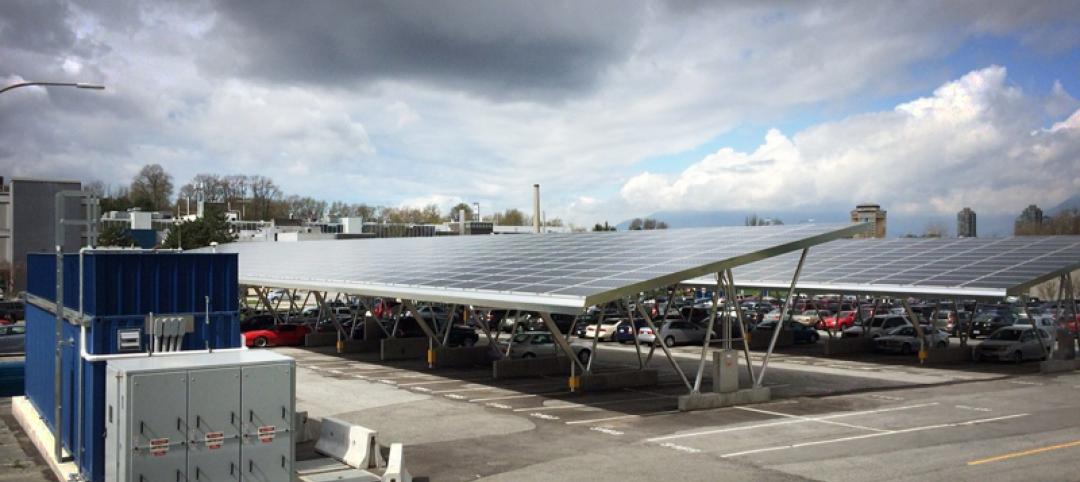Parking garages are no longer just nondescript concrete slabs. Earlier this month, the Green Parking Council (GPC) announced the first seven parking facilities in the country to achieve Green Garage Certification.
The title is determined by a rating system that factors in 48 elements of garage operation, structure, and technology, and recognizes sustainable practices in parking structure management.
The seven garages are located throughout the U.S. and have various uses. Four of them are office buildings: Brookfield’s Bank of America Plaza in Los Angeles; BG Holdco LLC’s BG Group Place in Houston; and Brookfield’s Silver Spring Metro Plaza and JLL’s Westpark Corporate Center, both in the Metro Washington D.C. area.
Cornell University’s Forest Home Garage in Ithaca, N.Y., is the lone school represented on the list, while Charles Square Hotel’s garage in Cambridge, Mass., and Och Ziff Capital Management Group Parking Acquisition Ventures’ Canopy Airport Parking in Denver are the only lodging and transportation venues on the list.
A variety of factors can make a parking garage green, from enhanced ventilation and energy-efficient lighting to greywater reuse and rainwater harvesting. Some have guidance systems to help drivers find their cars, others have tire inflation and electric car fueling stations, as well as car sharing and bicycle parking options.
The advantages of green garages not only help drivers but they also serve to benefit building owners. Reduced energy from lighting, ventilation, controls, and commissioning measures can keep operational costs around 25% lower than the national average.
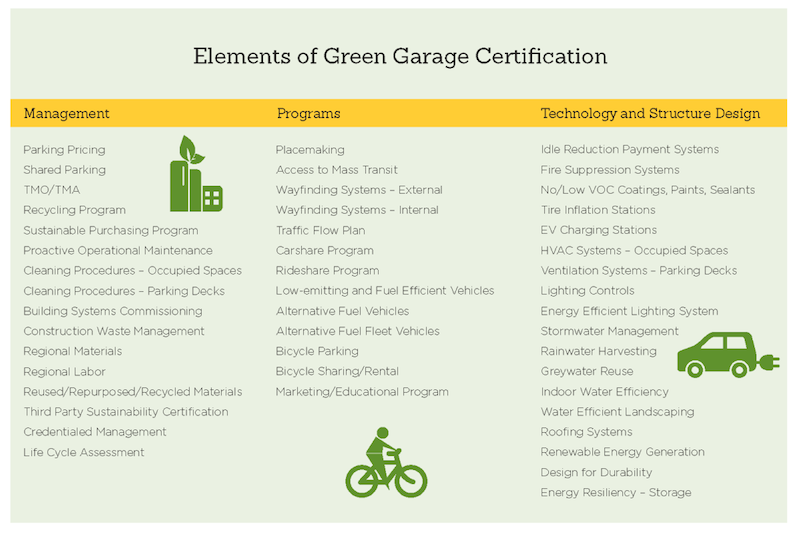
Related Stories
Sponsored | Transit Facilities | Jun 13, 2016
HRT Transit Center: The Ambience of a Park in an Efficient Bus Terminal
Whether building architecture or catching a bus, everyone’s happy when things run right on schedule.
Transportation & Parking Facilities | Jun 3, 2016
Colorful parking garage will serve commuters in Bay Area city
Artwork and patterns will be displayed on the structure’s 600-foot wide façade.
Transportation & Parking Facilities | May 27, 2016
Automated West Hollywood parking garage makes the world a bit cleaner
Using robots to store and fetch parked cars will save on carbon dioxide emissions.
Building Team Awards | May 24, 2016
Los Angeles bus depot squeezes the most from a tight site
The Building Team for the MTA Division 13 Bus Operations and Maintenance Facility fit 12 acres’ worth of programming in a multi-level structure on a 4.8-acre site.
Transportation & Parking Facilities | Mar 4, 2016
Calatrava's World Trade Center Transportation Hub is now open
Designed to look like a dove being released from a child's hands, the Oculus structure, the hub's focal point, is a symbol of rebirth for Lower Manhattan.
Giants 400 | Jan 29, 2016
TRANSIT SECTOR GIANTS: Perkins+Will, Skanska among top transit/TOD facility AEC firms
BD+C's rankings of the nation's largest transit/TOD sector design and construction firms, as reported in the 2015 Giants 300 Report
Transit Facilities | Jan 18, 2016
Pennsylvania Station set to transform into a world-class transportation hub
Governor Andrew Cuomo presented plans to turn Pennsylvania Station and the neighboring James A. Farley Post Office into a free flowing 21st century work of art.
| Jan 14, 2016
How to succeed with EIFS: exterior insulation and finish systems
This AIA CES Discovery course discusses the six elements of an EIFS wall assembly; common EIFS failures and how to prevent them; and EIFS and sustainability.
Airports | Aug 31, 2015
Airports expand rental car facilities to ease vehicular traffic at their terminals
AEC teams have found fertile ground in building or expanding consolidated rental car facilities, which are the No. 1 profit centers for most airports.
Sponsored | Transportation & Parking Facilities | Aug 3, 2015
Parking with a purpose: clean cars and solar power shape new structure
The project was the first of its kind in Canada to successfully demonstrate the integration of solar power, energy storage, and electric vehicle charging stations in a grid-tied or ‘islanded’ configuration.


